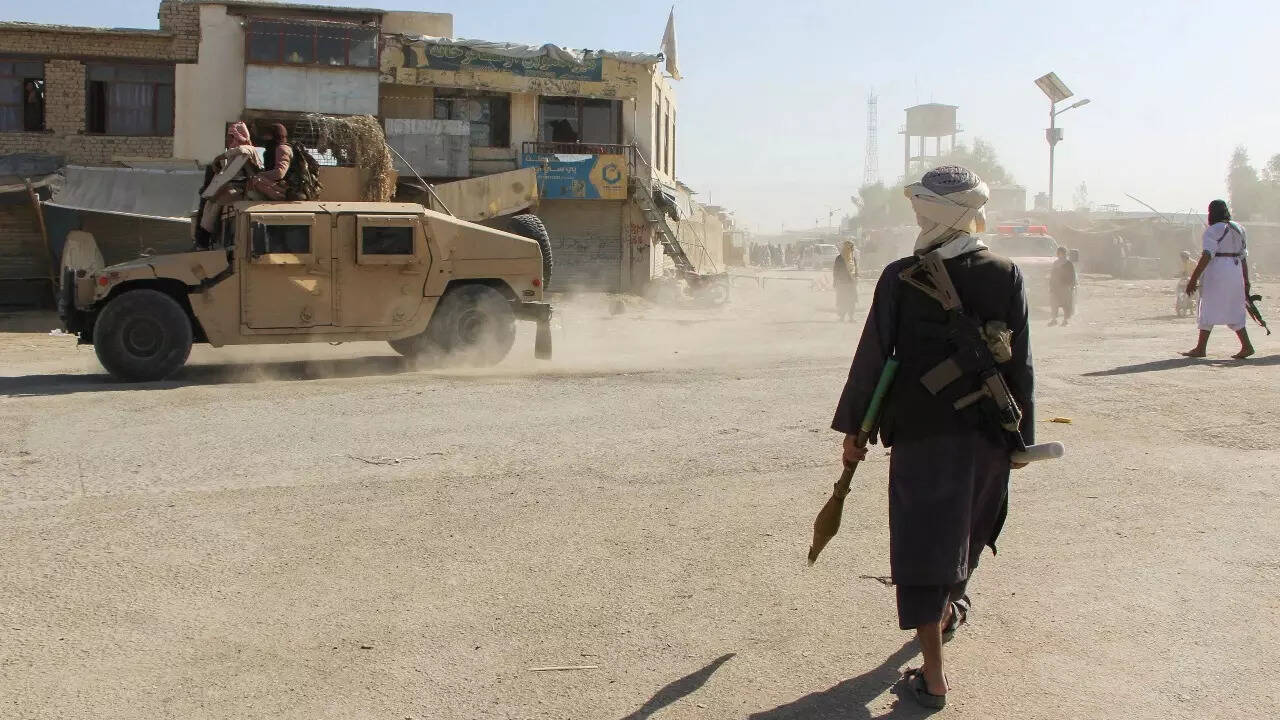Top Stories
Tensions Escalate at Pakistan-Afghanistan Border as Blast Kills 7 Soldiers

A coordinated suicide attack in Pakistan’s volatile North Waziristan region resulted in the deaths of seven soldiers and left 13 others injured. The assault occurred just hours before peace talks were scheduled to take place in Doha between Islamabad and Kabul. The attack was claimed by the Tehrik-i-Taliban Pakistan (TTP), which identified the operation as a coordinated effort from its Khalid bin Waleed unit.
The incident unfolded amid escalating tensions along the Pakistan-Afghanistan border, an area already marked by a history of violent encounters. Gun battles erupted in the aftermath of the explosion, with helicopters deployed to the region as security forces responded. This attack underscores the fragile situation in the area, particularly as both nations attempt to navigate a ceasefire that has been increasingly challenged in recent weeks.
Background of Ongoing Hostilities
The latest violence follows a series of tit-for-tat airstrikes and deepening distrust between the Taliban regime in Afghanistan and the Pakistani government. The TTP’s actions have been viewed as a pointed message during a time when Pakistan was seeking a negotiated pause in hostilities. The group has a history of launching attacks to assert its influence, particularly as both sides engage in complex negotiations.
Efforts to reach a lasting peace agreement have faced significant obstacles. The recent attack demonstrates the volatility of the situation and raises concerns about the prospects for a successful resolution to ongoing conflicts. As the international community watches closely, the implications of these developments could have far-reaching consequences for regional stability.
International Reactions and Implications
In the wake of the attack, there has been a renewed focus on the importance of diplomatic dialogue to address the underlying issues fueling the violence. Security analysts warn that without meaningful engagement, the cycle of retaliation may continue, further complicating any chance for peace.
Pakistan’s government has condemned the attack, emphasizing its commitment to combating terrorism while calling for increased cooperation with Afghan authorities. The timing of the assault, coinciding with crucial peace talks, adds a layer of complexity to an already tense situation.
The international community, particularly stakeholders involved in the Doha negotiations, will likely reassess their strategies in light of recent events. The ongoing conflict not only affects the immediate region but also has broader implications for international security and counterterrorism efforts.
As developments unfold, the focus remains on how both nations will respond to this latest violence and whether they can find a pathway toward stability. The coming days will be critical in determining the future of Pakistan-Afghanistan relations and the potential for lasting peace in a region long plagued by conflict.
-

 World5 months ago
World5 months agoSBI Announces QIP Floor Price at ₹811.05 Per Share
-

 Lifestyle5 months ago
Lifestyle5 months agoCept Unveils ₹3.1 Crore Urban Mobility Plan for Sustainable Growth
-

 Science4 months ago
Science4 months agoNew Blood Group Discovered in South Indian Woman at Rotary Centre
-

 World5 months ago
World5 months agoTorrential Rains Cause Flash Flooding in New York and New Jersey
-

 Top Stories5 months ago
Top Stories5 months agoKonkani Cultural Organisation to Host Pearl Jubilee in Abu Dhabi
-

 Sports4 months ago
Sports4 months agoBroad Advocates for Bowling Change Ahead of Final Test Against India
-

 Science5 months ago
Science5 months agoNothing Headphone 1 Review: A Bold Contender in Audio Design
-

 Top Stories5 months ago
Top Stories5 months agoAir India Crash Investigation Highlights Boeing Fuel Switch Concerns
-

 Business5 months ago
Business5 months agoIndian Stock Market Rebounds: Sensex and Nifty Rise After Four-Day Decline
-

 Sports4 months ago
Sports4 months agoCristian Totti Retires at 19: Pressure of Fame Takes Toll
-

 Politics5 months ago
Politics5 months agoAbandoned Doberman Finds New Home After Journey to Prague
-

 Top Stories5 months ago
Top Stories5 months agoPatna Bank Manager Abhishek Varun Found Dead in Well









